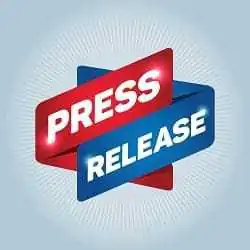As the COVID-19 pandemic moves into its third year in the Region of the Americas, Dr. Jarbas Barbosa, Director of the Pan American Health Organization (PAHO), has asked countries to improve surveillance and fill in gaps in vaccination coverage to end the emergency and be better prepared for future health crises.
In the Americas, there have been more than 190.3 million COVID-19 cases and more than 2.9 million deaths in the last three years. This is 25% and 43% of the total cases and deaths in the world.
“The pandemic showed that no country or organization in the world was fully ready for the effects of this pandemic,” Dr. Barbosa said today at a press briefing. This includes the Americas, which are a “region marked by inequities.”
Today, the number of cases is 20–30 times lower than it was a year ago. He also said, “We’re not out of the woods yet, but we’re in a much better place.”
The Director of PAHO talked about how important PAHO was in getting countries to where they are now. This means building and improving the COVID-19 Genomic Surveillance Regional Network, which is important for tracking how the virus is changing and for keeping an eye out for other pathogens that could cause a pandemic, like avian flu. In the past three years, more than 580,000 sequences from Latin America and the Caribbean have been added to global databases with the help of the network.
Dr. Barbosa also talked about how PAHO helped get COVID-19 vaccine shots into people’s hands by “mobilizing over 160 million doses through COVAX and helping the countries of Latin America and the Caribbean roll out more than 1.3 billion vaccine doses in less than two years.”
Dr. Barbosa said that despite these successes, “COVID-19 is still with us, and the virus has not yet settled into a predictable pattern.”
The PAHO Director said, “In the last month, there have been more than 1.5 million new cases and 17,000 deaths.” “We can’t sit back and do nothing.”
Dr. Barbosa warned that even though the number of tests has gone down, it is very important for countries to keep and keep improving surveillance because the SARS-CoV-2 virus “can change and adapt quickly.”
Reaching the 30% of people who haven’t gotten their COVID-19 primary series of vaccines yet is also important for “preparing ourselves for any new wave of infection or new variant of concern,”
Even though the Region has had some setbacks during the pandemic that “revealed or exacerbated weaknesses in our health systems,” such as in the detection and treatment of diseases like TB and HIV, in the testing and treatment of non-communicable diseases, and in the decline of routine vaccination rates, we now have a unique chance to “put health at the center of the Sustainable Development Agenda.”
The PAHO Director said, “We need to focus on getting back on our feet and rebuilding health systems that work for everyone. We also need to be better prepared for future health threats.”
“One of my main goals as I start my job is to help the countries of the Americas get over the COVID-19 pandemic.”
“PAHO is ready to help our countries in the Americas learn from the COVID-19 pandemic and use the lessons we’ve learned.”




